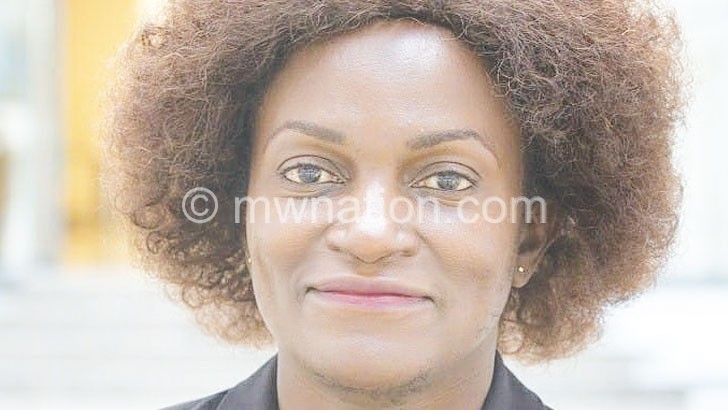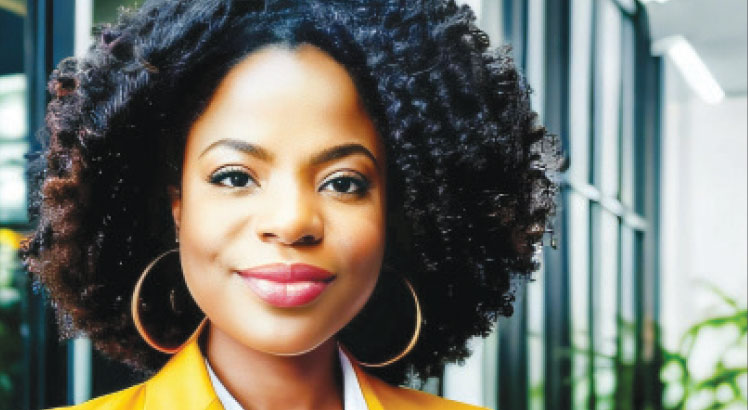Stella Gama: bridging the gender gap in climate
Women commonly face higher risks and greater burdens from impacts of climate change in situations of poverty, and the majority of the world’s poor are women.
Yet their unequal participation in decision-making processes and labour markets increase inequalities and often prevents women from fully contributing to climate-related planning, policy-making and implementation.

Stella Gama is one woman with stamina and persistence, a negotiator spearheading gender equality in climate change. She highlights the importance of integrating women in climate change discussions. She is best known for her work as a gender campaigner, on the international scene, leading in driving policies that many countries are adopting.
She is Director of Forestry in the Ministry of Natural Resources, Energy and Mining, and on top of her daily office work, Gama assumes multiple roles in the United Nations Framework Convention on Climate Change (Unfccc) negotiations, work that requires year-round commitment.
She is currently lead coordinator on gender and climate change for the least developed countries (LDC) group and LDC negotiator for technology development and transfer, among others, contending that women’s voices be heard.
A climate change negotiator is someone who pushes for a stand and policies that a country is taking, however, in her position Gama speaks for 49 LDC countries, from three continents with a wide mix of different cultures and ethnicities; a very complex position, as her role is ensuring all countries in this group are speaking with one voice, pushing for the same policy.
Climate change has a greater impact on those sections of the population, in all countries, that are most reliant on natural resources for their livelihoods and or who have the least capacity to respond to natural hazards, such as droughts, landslides, floods and hurricanes.
She expounds that irrespective of gender or sex, all experience climate impacts, and should have the ability to speak, engage in and develop solutions and policies to combat climate change.
Bridging the gender gap is what would help Malawi and other nations in building climate change resilience she says.
Resilience, Gama explains, is how communities, households and individuals adapt to the impact of climate change and how they will stand against future climate change impacts.
She says Malawi relies on agriculture, natural resources such as water, fuel wood and soil. The labour force is over 75 percent women in agriculture. But they previously did not have empowerment opportunities such as technologies that can assist them, nor do they have financing to boost agricultural production nor training, which in the end affects their resilience.
“Our historical background shows that women have been left out yet they are the ones who are driving our agriculture”. Stella observes
In 1994, the United Nations (UN) entered into a multilateral climate agreement with almost universal membership, for 25 years now, parties have been meeting annually to negotiate their responses to climate change.
However links to gender equality, women’s empowerment and climate change discussions have remained narrow.
“We are getting there, but we are really slow,” says Gama, adding that addressing the gender gap is highly important and key to addressing climate change resilience.
If empowered technologically, financially and given capacity, women in Malawi for instance she says will not produce business as usual, but produce surplus, will store food and go commercial.
Because they have not been empowered to go commercial she says as a country the adverse effects are a lot of money losses.
Citing a recent bulge of organisations working on women empowerment, trying to cover the gender gap; a national gender policy that makes sure women in agriculture, natural resources are empowered; she says the negative impact on economy is huge if women don’t get adequately supported.
Women are responsible for drawing water and fetching firewood, today they have to travel long distances.
During the dry season, when boreholes do not recharge enough the most affected are women and girls who travel long distances; which impacts their self –empowerment , through education as they don’t actively go to school and economic activities. It is therefore imperative that women’s voices be heard, she says.
To help get women’s voice involved a critical step was taken a few years back, when the Lima Work Programme on Gender was adopted by Parties in 2014, that defines new boundaries in the gender and climate change discussion, a two-year programme aiming not only at tackling the gender balance of participants at the UNFCCC negotiations, but also at introducing gender-responsive climate policies in signatory countries.
Gama worked resolutely alongside other parties to formulate the text and rally support for the adoption of the decision.
“It was quite daring to submit something like this,” she explains that back then gender was not something that Parties understood.
She says there were so many misconceptions, People did not even understand gender equality. In preceding conferences they had to work on terminologies so as to get gender responsive policies
Though there is change in terms of the mind-set with both male and female negotiators and delegates being more
positive towards the gender focus. Stella explains that gender equality is not just about the numbers at Unfccc but that it should be visible across all levels to local communities.
Gama, however, did not always want to be a negotiator or a forester.
Born in 1970 in Blantyre to civil servants. Stella completed her secondary school at Ludzi Girls in 1987; went to Chancellor College for a bachelor of science degree majoring biology and home economics. She then joined the Ministry of education where she taught for about five years.
An advert for a district forestry officer with a background in science and a major in biology or agriculture got her employed in the ministry of natural resources. However, she was posted at the regional forestry centre.
Growing up, her aspirations were to be a diplomat. Her father wanted her to study medicine which is why she applied for a bachelor of science.
At the ministry of natural resources she began as an assistant director responsible for biodiversity conservation and ecosystem services. She focused on multiple use of forestry, plant diversity, water resources, soil conservation including the roles forests play in mitigating climate change as well as adaptation mechanisms for climate change. Her interests in forests and climate change blossomed and grew.
She became a member of national technical
committee in climate change which led to attending her first conference in
Durban. At the time she was following Reducing Emission, forest Deforestation
and Degradation (Redd) plus.
The female negotiators she met inspired her and so did LDC chairperson and her supervisors. She was spotted for her ability. From Climate Change Conference abbreviated (COP) 17 to 19, she worked on Redd plus. Having concluded Redd plus in Cope 19 and waiting for the Paris agreement in 2015. She says she needed to pick another agenda, for the six hours negotiations. She chose gender. Now she follows gender, technology and forestry.
“Technology is about adapting one’s that are appropriate, environmentally and socially sound that can be transferred to agriculture, energy and water resources and exploring their efficiency.”
She says, as a negotiator, time management is an additional assignment. The many travels and preparations in addition to advancing consultations, and consolidating at times contending decisions and opinions which require a lot of work, makes it more complicated.
“Different countries bring to the table different positions,” Gama explains, adding that to negotiate effectively, one needs to understand why, the underlying issues, climate diplomacy and its history. For women challenges are finances, Gama gets funded by Women Delegates Fund (WDF) for two meetings in the year—climate change in June and climate parties in November.
Although Gama is grateful for the support that facilitates her participation in negotiations, hers is a challenging role because she works for vulnerable groups who are largely underrepresented, also due to limited travel funds, but who need to be heard.
In international climate negotiations, as displayed by the annual figures from the Women’s Environment and Development Organisation (Wedo). At COP22 in Marrakech in 2016, an average of 32 percent of delegates were female, and only 26 percent of heads of delegation were women.
On the positive side, she says the number of women in climate conferences and climate sub-bodies are increasing. But the need is for women to take leadership positions.
Her goal is to ensure that climate strategies are developed with women, not for them. A fight she will not let go. n



